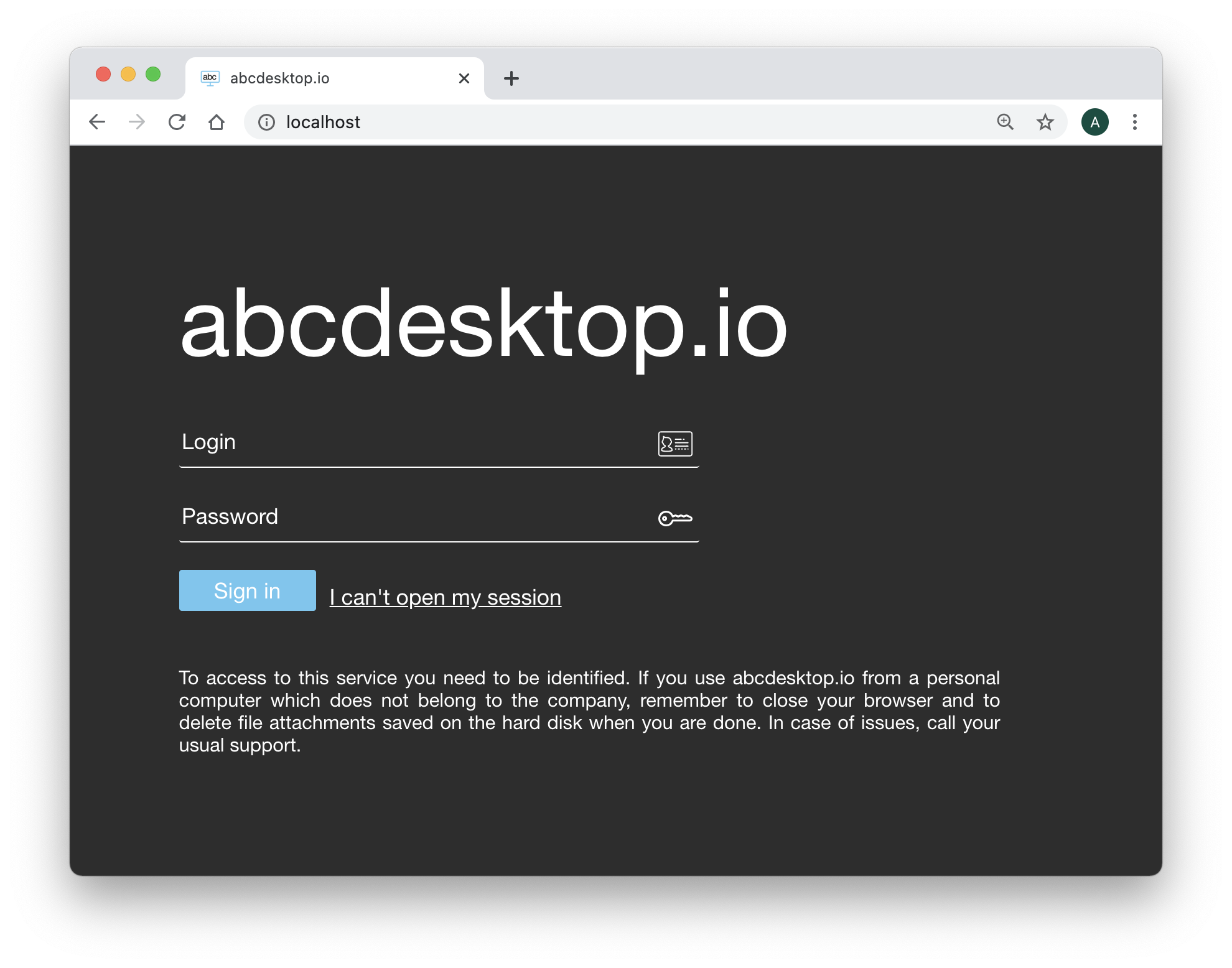Authentification explicit
authmanagers explicit:
explicit authentification use a directory service. The bind operation is used to authenticate clients to the directory server, to establish an authorization identity that will be used for subsequent operations processed on that connection.
The explicit authentification configuration is defined as a dictionnary object and contains an explicit provider.
The explicit authentification support the directory services ldap, ldaps, and Microsoft Active Directory.
Configuration sample for Microsoft Active Directory
For example :
'explicit': {
'show_domains': True,
'providers': {
'AD': {
'config_ref': 'adconfig',
'enabled': True
}
}
adconfig : { 'AD': { 'default' : True,
'ldap_timeout' : 15,
'ldap_protocol' : 'ldap',
'ldap_basedn' : 'DC=ad,DC=domain,DC=local',
'ldap_fqdn' : '_ldap._tcp.ad.domain.local',
'domain' : 'AD',
'domain_fqdn': 'AD.DOMAIN.LOCAL',
'servers' : [ '192.168.7.12' ],
'kerberos_realm': 'AD.DOMAIN.LOCAL',
'query_dcs' : True,
'wins_servers' : [ '192.168.1.12' ],
'serviceaccount': { 'login': 'SVCACCOUNT', 'password': 'SVCACCOUNTPASSWORD' }
}
}
Home page authentification
If the authmanagers explicit is enabled. The Web home page insert the new input values Login and Password to authenticate this user.

LDAP authmanagers :
Read the specific chapter on LDAP LDAP and LDAPS explicit authmanagers
Microsoft Active Directory authmanagers :
Microsoft Active Directory is implemented as a LDAP Server, start reading the chapter on LDAP LDAP and LDAPS explicit authmanagers, then read the specific chapter for Microsoft Active Director Microsoft Active Directory explicit authmanagers
Great, you have check how the explicit Authentification configuration works.